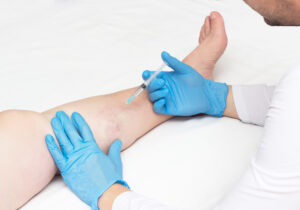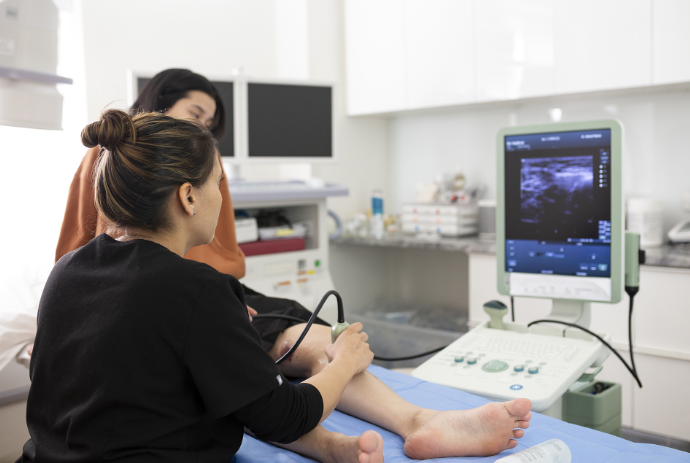What Is a Vein Specialist Called?
If you’re dealing with spider veins, varicose veins, or chronic leg pain, getting proper medical help is essential. However, most people don’t know where to begin or what a vein specialist is called. Understanding who treats these issues can make a big difference in your health, comfort, and confidence.
In this article, we’ll explain who these experts are, why they matter, and how vein treatment doctors can help you restore your circulation and well-being.
Understanding Vein Health
Veins are responsible for returning blood to the heart. When they don’t work properly—especially in the legs—blood can pool, causing visible or painful issues like varicose veins, leg swelling, or even skin ulcers. Many people ignore these symptoms, assuming they’re just cosmetic or age-related. But vein conditions can progress and impact your quality of life.
That’s where a vein specialist steps in.

What Is a Vein Specialist Called?
A vein specialist is usually known as a phlebologist—a medical doctor who specializes in diagnosing and treating vein disorders. However, vein treatment doctors can come from various medical backgrounds, including:
· Vascular surgeons – perform surgeries on veins and arteries
· Interventional radiologists – use imaging to guide minimally invasive vein treatments
· Dermatologists – treat superficial vein issues, often for cosmetic reasons
· Internal medicine or cardiology doctors – some with added training in venous disease
Despite their specialty titles, they all aim to improve vein health and function. When someone asks, “What is a vein specialist called?” the best answer is that it depends on the treatment type you need. But most importantly, they are trained vein treatment doctors with advanced knowledge of venous disease.
Why You Shouldn’t Ignore Vein Problems
Many people delay treatment for spider veins or leg discomfort, thinking it’s just a part of getting older. But vein disease can progress. If left untreated, it may lead to:
· Chronic leg pain or heaviness
· Swelling in ankles or calves
· Itching or burning skin
· Skin discoloration or ulcers
· Risk of deep vein thrombosis (DVT)
Consulting a vein specialist early helps prevent complications. Vein treatment doctors can spot signs of deeper issues using ultrasound or other imaging tools, even if you only see surface veins.
Types of Vein Treatments Available
Once you visit a vein specialist, they’ll evaluate your condition and recommend the best treatment based on severity and symptoms. Some common treatments include:
· Sclerotherapy: A solution is injected into small veins, causing them to collapse and fade.
· Endovenous Laser Therapy (EVLT): A laser fiber closes problematic veins from the inside.
· Radiofrequency Ablation (RFA): Uses heat to close off larger varicose veins.
· Ambulatory Phlebectomy: Small incisions remove visible veins near the skin’s surface.
· Compression Therapy: Prescription-grade compression stockings improve blood flow and reduce symptoms.
All these treatments are minimally invasive and performed by certified vein treatment doctors. There’s little to no downtime, and most patients return to normal activities within a day or two.
Who Should See a Vein Treatment Doctor?
Anyone experiencing the following symptoms should consider scheduling a vein consultation:
· Leg pain or cramping after long periods of standing
· Visible blue, purple, or bulging veins
· Leg heaviness, especially in the evening
· Swelling that improves overnight but returns during the day
· Skin changes near the ankles
Even if your primary concern is cosmetic, like spider veins, it’s wise to get checked by a specialist. Many vein treatment doctors offer consultations that include a thorough vascular exam and ultrasound.

Choosing the Right Vein Specialist
When deciding who to see for vein problems, look for qualifications such as:
· Board certification in vascular surgery, phlebology, or interventional radiology
· Experience with ultrasound diagnostics
· Access to modern treatment options (laser, radiofrequency, etc.)
· Good patient reviews and before/after photos
Remember, vein disease is medical, not just cosmetic. Make sure your provider is medically trained to assess circulation and identify underlying problems. The best vein treatment doctors treat both the visible symptoms and the root causes.
Final Thoughts:
So, what is a vein specialist called? In short, they go by many names—phlebologist, vascular surgeon, interventional radiologist—but their mission is the same: to diagnose and treat vein disorders safely and effectively.
If you’ve been putting off treatment because you weren’t sure where to go or what to expect, now is the time to act. Whether you’re managing minor spider veins or major circulation issues, certified vein treatment doctors can help restore your comfort, mobility, and confidence.
Comments
Post a Comment